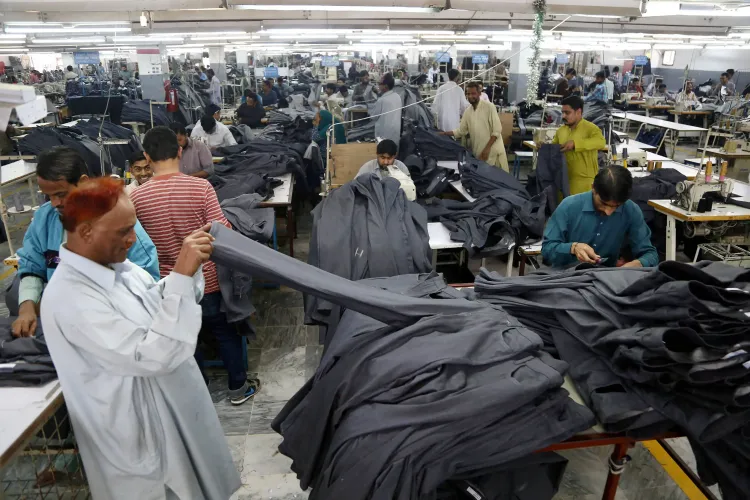Pakistan Faces Major Blow as US Imposes 29% Tariff

Synopsis
Key Takeaways
- US imposes 29% tariff on goods from Pakistan.
- Pakistan's exports to US significantly affected.
- Opportunity for local production to become competitive.
- Need for diversification in export markets.
- Impact on textile sector expected to be severe.
Islamabad, April 3 (NationPress) The Trump administration has enacted a 29 per cent tariff on imports from Pakistan, leading experts to analyze the repercussions of this latest retaliatory measure against Islamabad's 58 per cent tariff on American goods.
In defense of his action, US President Donald Trump stated that it was essential to address long-standing trade disparities and the inequitable treatment of US products in international markets. He highlighted that Pakistan has been imposing a 58 per cent tariff on American goods, which led to the US's decision to implement a reciprocal 29 per cent tariff on Pakistani goods.
This decision is pivotal for Pakistan, as the US stands as one of its primary trading partners, with a bilateral trade worth approximately 7.3 billion in 2024.
Economists are flagging immediate challenges for Islamabad, noting that one-fifth of its exports are directed to the US.
"The US is by far our largest market and is unlikely to be fully substituted for Pakistani enterprises," remarked Ali Hasnain, an Associate Professor at Lahore University of Management Sciences (LUMS).
"Pakistan should keep seeking diverse markets for our products while collaborating with other nations in multilateral efforts to persuade the US to reconsider this trajectory, as it will diminish global trade and hinder economic progress moving forward," he added.
The immediate consequences of the US tariff are expected to negatively affect Pakistan, given that the US is its largest trading partner. However, some analysts suggest this may provide an opportunity to enhance local production competitiveness.
According to Maleeha Lodhi, former Pakistan Ambassador to the US, "Trump's tariffs will significantly impact Pakistan's textile sector. The country will face shocks, and low-margin textile categories will be particularly vulnerable."
"Pakistan needs to adjust accordingly. The nation will have to explore new markets and find ways to enhance the competitiveness of its exports," Lodhi further stated.
Sajid Amin, Deputy Executive Director at the Sustainable Development Policy Institute (SDPI), emphasized the need to effectively counter the immediate negative fallout.
"Pakistan's tariffs are lower than those of Bangladesh and Vietnam, which can present an opportunity. However, innovation will be crucial," he noted.
Numerous analysts predict that Pakistan's textile industry will suffer a significant blow and may encounter serious challenges going forward.
Economist Adil Nakhoda pointed out that the US market is predominantly focused on the textile sector, making it the most vital for Pakistani exports.
"Pakistan should consider boosting its exports of textile made-up products to the European Union and seek additional export avenues for the textile industry. The country may also need to source upstream textile materials from the US to balance this ratio and gain concessions on its textile products with US content," he advised.
It is fair to say that the bilateral relationship between the US and Pakistan has become increasingly transactional following Trump's latest tariff announcement, as there are currently no immediate substitutes for Pakistani exports.
"Pakistan will undoubtedly look to other nations to enhance its export performance, but this transition will take time. Non-textile exports are poised to suffer more. Textile exports could benefit from the fact that tariffs on competing countries are higher," stated Khurram Hussain, an economist.










